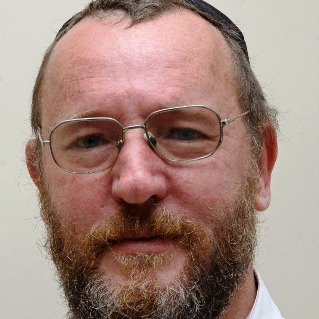click to dowload our latest edition
CLICK HERE TO SUBSCRIBE TO OUR NEWSLETTER


Published
9 years agoon
By
adminDAVID SAKS
After he and the cast have narrowly escaped with their lives after the first performance, he realises that some emendations to the script are called for, and duly makes them. Among other things, Uncle Tom himself becomes a chicken thief. When it becomes apparent that the changes haven’t gone far enough, he has Uncle Tom threaten to hit Topsy with a brandy bottle… so it continues, with the relationships between various cast members being weaved into the mix, until the whole is brought to a typically Bosmanesque conclusion.
When, long after his death (aged only 46), Bosman scholars went about tracking down his writings, “Sold down the river” was discovered in the archives of the South African Jewish Times, of all papers.
It was commissioned by the then editor, Leon Feldberg, who had also brought Bosman on board to write special Rosh Hashanah columns, from an Afrikaner to the Jewish community.
The latter pieces – typically quirky, unconventional takes on such issues as anti-Jewish prejudice and the perennial anxiety of a religious-ethnic minority to “fit in” and be accepted while still maintaining its distinctive group identity – have also since appeared in anthologies of HCB’s writings.
Bosman can be described as a politically incorrect anti-racist, one who saw all human beings in fundamentally equal terms and depicted them as such in his writings, while at the same time often flouting conventional standards of liberal modes of expression in ways that could be rather shocking.
Bizarrely, his advice on combating anti-Semitism was not that Jews should deny allegations that they were money-loving and exercised too much influence, but rather to baldly admit to it and tell their accusers to get stuffed.
That Bosman wrote at all for one of the Jewish community’s main organs, is indicative of the broader connections that he had with individual Jews throughout his life. Most significant was his friendship with Bernard Sachs, which began when they were schoolboys at Jeppe High and continued (with occasional interruptions) until Bosman’s death in 1951.
Sachs was himself an important figure in early South African writing, both as an editor and as a journalist and historian. As editor of the literary journal South African Opinion, he published many classic Bosman short stories, and other striking non-fiction pieces by him on literature, politics and Johannesburg society.
Because of the way he immortalised the Groot Marico area of the then Western Transvaal, where he lived for no more than a year, less emphasis has been placed on the fact that Bosman was essentially a Johannesburg man, and one of the most insightful commentators on that raw young metropolis during its formative decades.
An intelligent, highly cultivated man, Sachs was the brother of the famed trade unionist and anti-apartheid activist Solly Sachs, and uncle of Albie. Unlike his brother, he maintained a strong connection to his Jewish roots. (The family name, by the way, was originally spelled “Saks”, the same as that of a certain Jewish Report columnist).
Bosman’s first serious relationship with the opposite sex (his first marriage, subsequently annulled, notwithstanding) was with a young Jewish woman, Ellie Beemer. It was eventually brought to an end through pressure from the latter’s family, and it is hard to condemn them for it.
Apart from the religious question, Bosman was by then an ex-convict who had served over four years for murder – the circumstances of which remain obscure even now – and he was clearly also a troubled, sometimes unstable personality.
Other Jews who befriended Bosman and played a part in advancing his literary career, were his literary editor, Lily Rabkin, and Edgar Bernstein, also an author and journalist who later became deputy secretary-general of the SA Jewish Board of Deputies.
On Bosman’s death, Bernstein, Rabkin and Feldman contributed some of the most important obituaries about him. Feldman’s included the comment: “The sudden death of Herman Charles Bosman has robbed South Africa of a fine writer, and the Jewish community of a good friend.”
Subsequently, Sachs published a full biography, Herman Charles Bosman as I Knew Him, one of the most important sources on the writer, which also vividly captures the flavour of Johannesburg’s pre-war Bohemian underground.
Later Valerie Rosenberg, a Bosmanophile, although she never personally knew Bosman, produced three biographies on him, the latest of which, Herman Charles Bosman – Between the Lines, appeared in 2011.
Mention should also be made of the poet and author Lionel Abrahams, whom Bosman coached in writing at the beginning of his career and who in turn went on to edit several posthumous volumes of Bosman’s work.
There are no doubt many other Jewish connections to this strange and brilliant man, one who, notwithstanding the two South African Nobel Literature laureates who have since followed (Nadine Gordimer and J M Coetzee) probably can still be said to have been, in the words of the poet Roy Campbell, “the only literary genius that South Africa has produced”.
